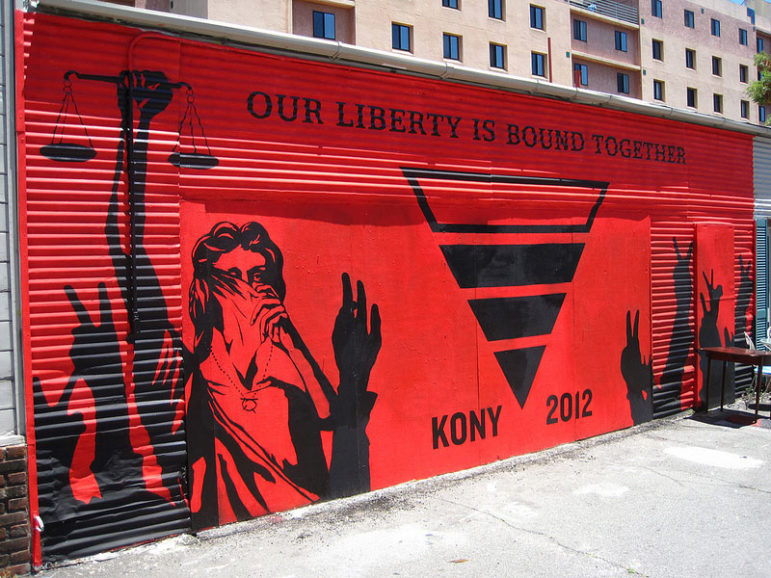
September 16, 2016; Salon
NPQ covered it. You likely saw it. Salon staff writer Christina Cauterucci offers a thoughtful analysis of what caused the viral video to “quickly became a punchline” and also teach “a generation of activists how to harness the power of social media for good.”
The short documentary film Kony 2012 was produced by Invisible Children. The objective was to make Ugandan war criminal and International Criminal Court fugitive Joseph Kony globally infamous in order to have him found and placed into custody by the end of 2012. As of today, the film has received over 101,268,670 views. Joseph Kony is still at large.
With “Gangnam Style” by PSY at nearly three billion views, Kony 2012 is a quaint memory even as a viral video. Nevertheless, Kony 2012 was a nonprofit sector phenomenon, so worth this recollection. Here is Cauterucci’s astute assessment of what sparked Kony 2012’s viral sharing and its subsequent downfall.
Sign up for our free newsletters
Subscribe to NPQ's newsletters to have our top stories delivered directly to your inbox.
By signing up, you agree to our privacy policy and terms of use, and to receive messages from NPQ and our partners.
Kony 2012 spread because it was easy—easy to understand, easy to donate, easy to promote. It taught a generation of would-be activists some hard lessons—chiefly, that activism that begins and ends with social media posts (posting an ice bucket video, changing a profile photo to the Human Rights Campaign logo) performs more good for the doer than the cause. It tells your social network that you did this thing; you believe this thing; you are a charitable, good-hearted, aware human being, just like all of your friends who’ve posted the same exact thing. It’s activism so quick and easy that you don’t need to know much about the cause to join in, just a modicum of trust in the friend who posted it first.
The film’s director, Jason Russell, experienced a personal downfall during the Kony 2012 controversy that he discusses here with Oprah. He recovered. Here is his Twitter bio: “The truth will set us free; and sometimes getting naked expedites the process. Co-founder of Invisible Children and founder of Broomstick Engine.” Broomstick Engine is a marketing firm that leads with the Kony 2012 film. There are serious charity brands on display as clients, so hopefully he has embraced the lessons Kony 2012 taught. As Cauterucci writes, “Watching the movement wither under public scrutiny showed these young people the value of asking questions and looking for the telltale signs of white people making other people’s suffering all about themselves. It’s difficult to imagine Invisible Children’s tactics flying today, just a half-decade later.”
Kony 2012 failed in part for its use of simplification and sensationalism to draw viewers into its emotional story of enslaved children. The film’s inaccuracies caused immediate criticism and disappointment, especially by Ugandans. Cauterucci’s analysis in Salon goes in several interesting directions well worth reading. She concludes her article this way: “Kony 2012 left a lasting mark on young people’s political consciousness. That the mark has nothing to do with human rights atrocities in Uganda is a lesson in the limits of awareness pursued at the expense of truth.”—James Schaffer













